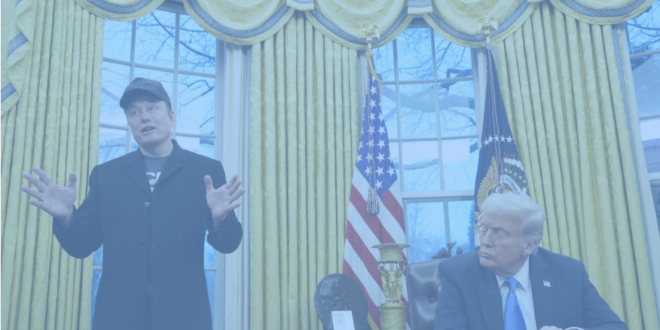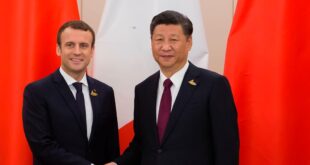Muhamad Yehia
Elon Musk made a rare public appearance at the White House on Tuesday to defend the swift and extensive cuts he’s pushing across the federal government while acknowledging there have been mistakes and will be more.
Musk stood next to the Resolute Desk with his young son as Trump praised Musk’s work with his Department of Government Efficiency, saying they’ve found “shocking” evidence of wasteful spending. The Republican president signed an executive order to expand Musk’s influence and continue downsizing the federal workforce.
Despite concerns that he’s amassing unaccountable power with little transparency, Musk described himself as an open book as he took questions from reporters for the first time since joining the Trump administration as a special government employee. He joked that the scrutiny over his sprawling influence over federal agencies was like a “daily proctology exam.”
He also claimed that DOGE’s work was being shared on its website and on X, the social media platform owned by Musk. However, the DOGE website has no information, and the postings on X often lack many details, including which programs are being cut and where the organization has access.
The White House has also been moving to limit independent oversight. The inspector general for the U.S. Agency for International Development was fired a day after warning that it had become nearly impossible to monitor $8.2 billion in humanitarian funds after DOGE began dismantling the agency.
▶ Musk’s comments on DOGE
Trump teases matching tariffs on trade partners, possibly setting up a major economic showdown
President Donald Trump is taking additional action to upset the world trade system, with plans to sign an order as soon as Wednesday that would require that U.S. tariffs on imports match the tax rates charged by other countries.
The president had suggested that the order would come on Tuesday or Wednesday. But when Tuesday passed without the tariffs being officially announced, Trump was asked if he would sign the order on Wednesday and Trump answered: “We’ll see what happens.”
A reciprocal tariffs order could amount to a substantial tax hike to be shouldered largely by U.S. consumers and businesses as the Census Bureau reported that the country had total imports of $4.1 trillion last year. The tariffs could set off retaliatory measures by trading partners that could roil growth around the globe and reset where the United States stands with allies and rivals alike.
By signing the order, Trump would fulfill his long-standing pledge to raise taxes on most imported goods, a clear break with his recent White House predecessors who saw tariffs as either targeted tools to use strategically or barriers worth lowering. Trump has broken with that precedent by saying he wants to return the United States to the 1890s when taxes on imports were the government’s dominant source of revenues.
 موقع وجه أفريقيا موقع وجه أفريقيا هو موقع مهتم بمتابعة التطورات في القارة الأفريقية
موقع وجه أفريقيا موقع وجه أفريقيا هو موقع مهتم بمتابعة التطورات في القارة الأفريقية



